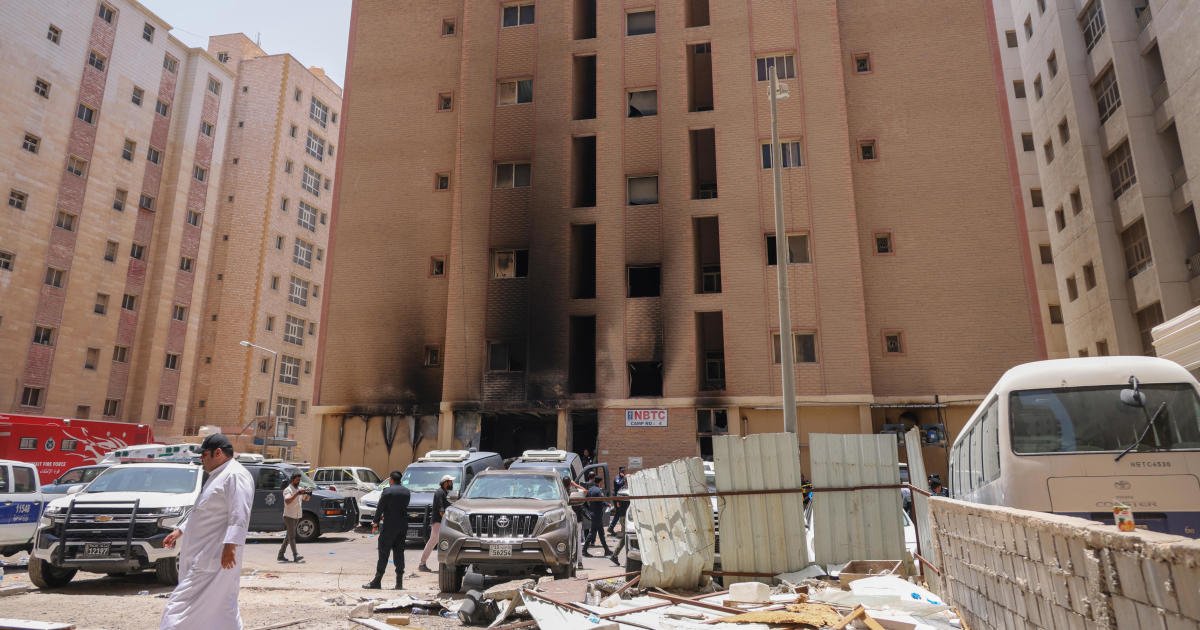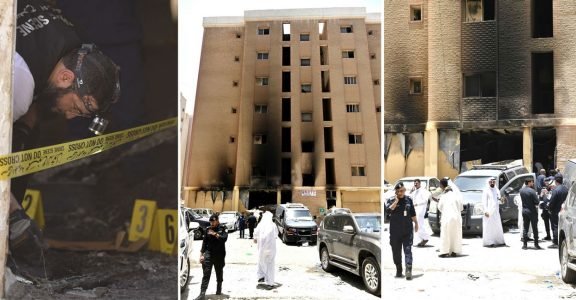Tragic Fire in Kuwait: 19 Keralites Confirmed Dead, Five from Tamil Nadu Feared Lost
A devastating fire in Kuwait has resulted in the tragic deaths of 19 individuals from Kerala, India, with an additional five people from Tamil Nadu feared dead.
This incident has sent shockwaves through the communities both in Kuwait and back in India, highlighting the vulnerabilities faced by migrant workers in the region.
The Incident
A massive fire broke out in a residential area in Kuwait, quickly engulfing several buildings and trapping many occupants inside.
The blaze is believed to have started and despite the swift response from local firefighting teams, the fire spread rapidly due to contributing factors such as building materials or layout.

Eyewitnesses reported scenes of chaos and desperation as residents tried to escape the inferno.
Many were trapped due to blocked exits and dense smoke. The fire was eventually brought under control after several hours, but the damage was already catastrophic.
Casualties and Impact
The Kerala government confirmed that 19 individuals from the state lost their lives in the tragedy. These victims were among the many Keralites working in Kuwait, often employed in low-wage jobs.
The Kerala Chief Minister, expressed profound grief and extended condolences to the families affected by this calamity.
In addition to the confirmed deaths from Kerala, there are fears that five individuals from Tamil Nadu may also have perished in the blaze.
Efforts are ongoing to identify all the victims and provide accurate information to their families.
Response and Relief Efforts
The Indian Embassy in Kuwait has been actively involved in coordinating relief efforts.
Ambassador stated that the embassy is working closely with Kuwaiti authorities to provide assistance to the injured and facilitate the repatriation of the deceased.

The embassy has also set up a helpline for families seeking information about their loved ones.
The Kerala government has announced financial aid for the families of the deceased and has assured support for the repatriation process.
The Chief Minister of Tamil Nadu, has also pledged assistance to the families affected in his state and has instructed officials to stay in close contact with the Indian Embassy in Kuwait.
Local community organizations and non-profits in Kuwait have mobilized to provide immediate relief, including temporary shelter, food, and medical assistance to those displaced by the fire.
Broader Implications for Migrant Workers
This tragedy has once again highlighted the precarious conditions under which many migrant workers live and work in the Gulf region.
With a significant population of Indian expatriates in Kuwait, particularly from states like Kerala and Tamil Nadu, the incident has raised serious concerns about safety standards and emergency preparedness in residential areas predominantly inhabited by migrant workers.
Safety and Regulatory Issues
The fire has brought to the forefront several critical issues regarding building safety and fire regulations in Kuwait.

Initial reports suggest that specific issues such as lack of fire exits, use of flammable building materials, or delayed response may have contributed to the high casualty rate.
There are calls for a thorough investigation to determine the exact cause of the fire and to hold accountable those responsible for any lapses in safety standards.
The Human Cost
The human cost of this tragedy is immeasurable. Many of the victims were breadwinners for their families back in India, supporting them through remittances sent from their earnings in Kuwait.

Their sudden and tragic deaths have left families not only in grief but also in financial uncertainty.
Conclusion
The fire in Kuwait that claimed the lives of 19 Keralites and potentially five individuals from Tamil Nadu is a heartbreaking reminder of the vulnerabilities faced by migrant workers.
As investigations continue and relief efforts ramp up, it is crucial to address the underlying safety and regulatory issues to prevent such tragedies in the future.
The Indian and Kuwaiti governments, along with community organizations, must work together to support the affected families and ensure the safety and well-being of all migrant workers in the region.
This incident underscores the need for greater attention to the living and working conditions of expatriates, ensuring that their contributions to the economy are matched by the protections and rights they deserve.




